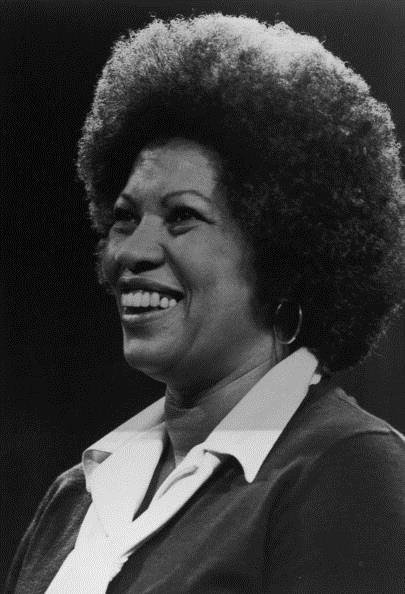Toni Morrison: In Memoriam (1931-2019)
Toni Morrison
6 August 2019 – The PEN International community mourns the death of literary icon and friend, Toni Morrison, at the age of 88 on 5 August 2019, following a short illness. A Nobel Laureate, Morrison was a long-standing and dedicated member of PEN America and Vice President of PEN International, who drew attention to African-American voices in American literature.
Reflecting on Morrison’s legacy, PEN International President Jennifer Clement stated:
“Our loss is double today: the world loses a great writer and PEN loses an invaluable Vice President. Toni Morrison spoke out for writers who are silenced with strength and grace, and was a tireless activist whose timeless writings altered the literary canon.
“About PEN and PEN's work she once said, ‘My respect for this organisation has no borders—PEN has been fierce, so consistent and ferocious in its efforts that it is hard to ignore their impact worldwide.’
“I’ll never forget her insight and brilliance when she said: ‘We die. That may be the meaning of life. But we do language. That may be the measure of our lives.’ These are words to remember when the state of the world seems in flux, when so much seems fleeting, and when the voices of so many are stifled.”
Born in 1931 in Lorain, Ohio, Morrison studied at Howard University, where she majored in English, before going on to receive an MA from Cornell University with the thesis entitled Virginia Woolf's and William Faulkner's Treatment of the Alienated. She taught English at Texas Southern University and Howard University before moving into the publishing industry. It was in this period that Morrison took up the pen herself, publishing her debut novel The Bluest Eye in 1970.
Her subsequent novels Sula (1973) and Song of Solomon (1977) garnered her national attention, the latter winning her the 1977 National Book Critics Circle Award and an Arts and Letters Award in 1978. In 1987, Morrison’s novel Beloved became a critical success and won the American Book Award, the Anisfield-Wolf Book Award and the Pulitzer Prize for fiction.
Alongside her writing career, Morrison also held a number of teaching positions at universities around the United States, including at her alma mater Howard University. In 1989, she became the Robert F. Goheen Professorship of the Humanities at Princeton University and remained Chair of the Creative Writing Programme until 2006. She also established the prestigious Princeton Atelier programme which brought together talented students with internationally regarded artists. In 1993 Morrison was awarded the Nobel Prize in Literature, the first black woman to win the award, with the citation ‘[to Toni Morrison] who in novels characterized by visionary force and poetic import, gives life to an essential aspect of American reality’.
Morrison was a committed advocate for free speech having experienced censorship herself as one of the most banned authors in America. She spoke passionately about the need for freedom of expression, “The thought that leads me to contemplate with dread the erasure of other voices, of unwritten novels, poems whispered or swallowed for fear of being overheard by the wrong people, outlawed languages flourishing underground, essayists' questions challenging authority never being posed, unstaged plays, cancelled films—that thought is a nightmare. As though a whole universe is being described in invisible ink.” In conjunction with PEN America (and with contributions from many PEN members) Morrison edited a collection of essays on censorship and the power of the written word entitled Burn this Book in 2009. A member of PEN America, Morrison was elected Vice President of PEN International in 2006. In 2016, Morrison received the PEN/Saul Bellow Award for her contribution to American literature.
In paying tribute to Morrison, PEN America CEO Suzanne Nossel stated: “PEN America mourns long-time member Toni Morrison, 1993 Nobel Prize winner, 2008 PEN Literary Service Award winner, and 2016 PEN/Saul Bellow Award winner. Her unmatched ability to use story to kindle empathy and rouse the imaginations of millions to contemplate lived experiences other than their own has transformed our culture. Her faithfulness to fellow writers and the cause of literature was unparalleled. To have her voice silenced at this moment is an almost unbearable loss. Our society would do well to recall her maxim just now, ‘If there is a book that you want to read, but it hasn’t been written yet, you must be the one to write it.'”

